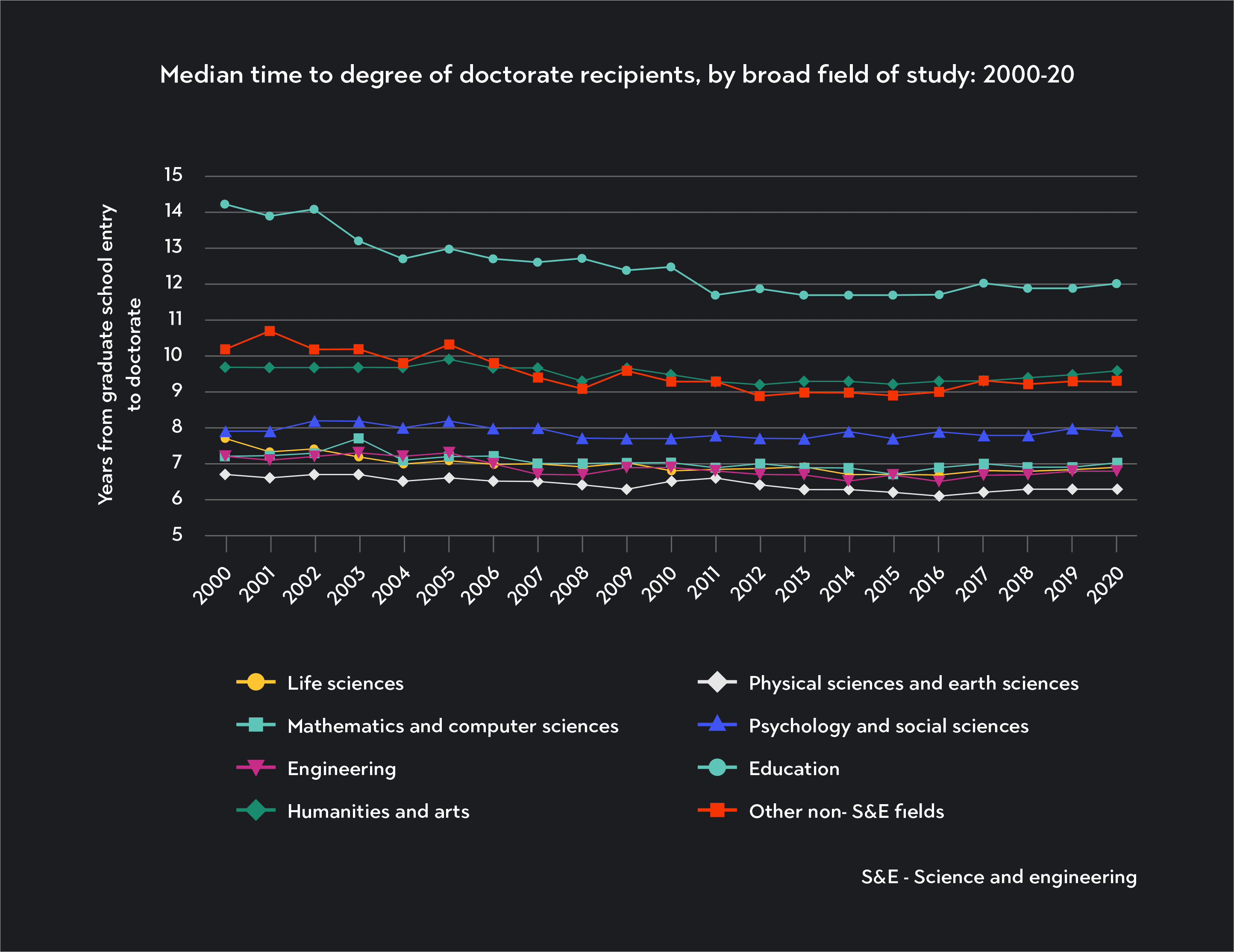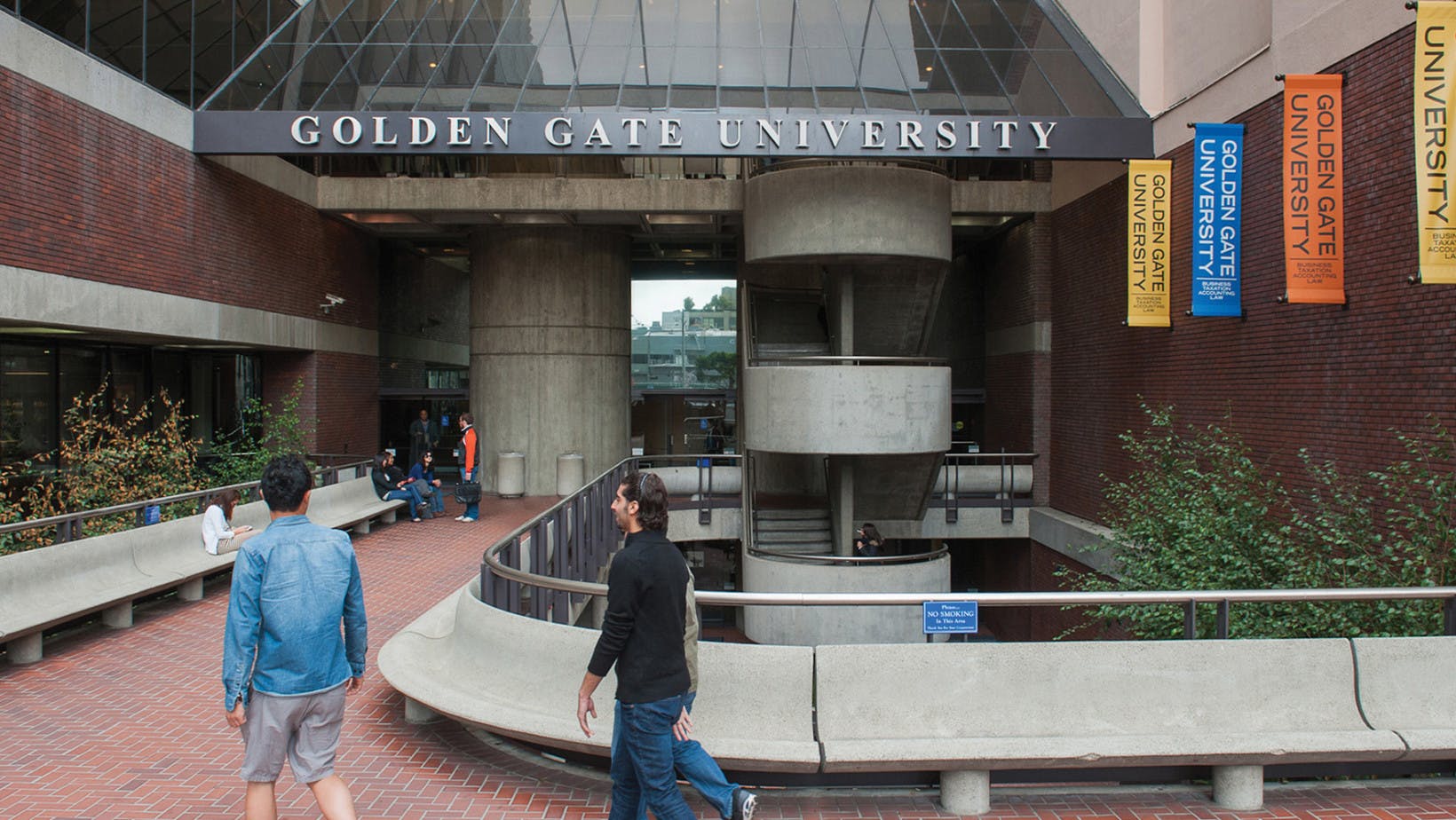
College Success
What Is Community College?
Learn what community college is, how it has changed, and how it differs from a university. Also, discover what course enrollments to expect and tuition costs.
Nick Griffin
Subject Matter Expert

College Success
07.13.2023 • 10 min read
Managing Editor
Learn how to become a professor by checking out the requirements, the various career paths, and some powerful tips.
In This Article
One of the most famous professors of all time had a saying: “X never ever marks the spot.”
Maybe you’ve heard of him.
During his archeology lectures, he'd wear glasses and a tweed suit.
Oh, and he had one extra skill.
A knack for recovering valuable artifacts.
Dr. Jones transformed into Indiana Jones.
Although completely fictional, I believe the spirit behind his dedicated character lives in many real-life professors today.
Since you’re here, chances are you want to embark on similar adventures.
Read on for an overview of:
What is a professor
The different paths
The requirements
Practical tips
Plus insights from myself and others who have taught in college
A college professor is an educator who works at a college or university, teaching courses and conducting research.
Being a professor requires deep knowledge, skill, and a commitment to learning.
Professors can teach in many ways like:
Giving lectures
Hosting seminars
Guiding workshops
Overseeing labs
Conducting online courses
Professors and teachers are not the same. Even though both aim to educate, professors have higher qualifications than teachers. They normally have Ph.D.s or the highest degree in their subject plus professional experience in what they teach. Professors guide students in their coursework and research projects.
Professors also play a vital role in the academic community by:
Serving on committees that shape curricula
Developing new courses based on current trends in education or research breakthroughs
Engaging with other academics through publishing scholarly articles or attending conferences
Representing their institutions through outreach activities like guest speaking engagements or public lectures
College professors are dedicated professionals who facilitate student and critical thinking while contributing to the advancement of knowledge overall.
How long does it take to begin teaching at the college level? How much postsecondary education is required? Do you need a Ph.D. to be a professor?
It all depends.
Dr. Clarissa Steele, an assistant professor at Kansas State University, commented on this through an email: “Professors can take a lot of different paths to teaching, and it often depends on your field. I work in the social sciences, so the most common paths are completing a Ph.D. or a master's degree with or without work experience in the field.”
More from her in a minute.
Universities have various tiers and titles for university professors. We’ll look at these faculty members and the average salary.
Keep in mind that salary or wage ranges can vary widely depending on many factors like:
Position
Education
Certifications
Additional skills
Number of years in your profession
In the first section, let’s look at these non-tenure positions:
Lecturer
Adjunct professor
Graduate teaching assistant
A lecturer or instructor at a university is a specialist in their field. They develop course materials and grade assignments. While they're not obligated to conduct research, many choose to contribute to their field's academic dialogue.
Dr. Steele talked about her instructors at Kansas State. "[They] are often people with master's degrees (and sometimes Ph.D.s) who have significant work experience. They spend most of their time teaching, just like tenure-track teaching professors.”
| Title | Average Pay |
| Lecturer | $53,730–$93,546 |
Source: Salary.com
An adjunct professor is a part-time position as a university educator. Unlike full-time professors, these individuals typically don't have tenure. They are industry professionals sharing their real-world expertise. Adjunct professors teach a limited number of courses each semester. Their responsibilities include creating syllabi, delivering lectures, and grading student work.
It was 2012 when I discovered adjunct teaching. The Army had just moved me and my family to Misawa Air Force Base in Japan, where F-16s would roar in the sky above every few hours. (Yes, the 2-year experience was amazing!) Apart from the adventure of being in a new country, I was an unemployed high school teacher with nothing to do.
Then a professor friend gave me an opportunity to work online with her university as an adjunct professor. (And being a military spouse able to work from home was huge.) With my master’s degree, I got the job.
I was an online adjunct professor for almost a decade.
Adjuncts usually get paid based on the course and student headcount. You’ll also get fewer courses if more adjuncts are available to teach or tenured professors decide to take on extra courses.
Although my becoming an adjunct wasn't planned, you can use this position as an entry point into academia. If you like it, you can continue to pursue a doctorate or a tenure-track position.
| Title | Average Pay |
| Adjunct Professor | $31,079–$37,787 |
Source: Salary.com
A graduate teaching assistant (GTA) is a postgraduate student who supports the teaching of academic and faculty staff members.
When getting my master’s in Education, I was 1 of 3 GTAs. We helped with the distance program where K–12 teachers took synchronous online courses for their master’s or Ed.S. degrees. I helped monitor the chatroom for any comments or questions during the lecture. I also set up the cameras, archived recorded sessions, and occasionally presented lessons.
Now, was I paid? I did get a bi-monthly check for about $600. Nothing huge. But it covered my rent and utilities!
The experience overall was incredibly useful. From behind the scenes of the program, I had access to all the learning material even from previous cohorts. And as I helped run the distance education program, I got extra insights into online learning and how to facilitate learning successfully.
These valuable skills I used later as an online professor and even today as an online manager.
| Title | Average Pay |
| Graduate Teaching Assistant | $15,146–$22,877 |
Source: Salary.com
Professors on track for tenure have more “rank.” Academic tenure is a special job status giving professors strong job security. They can only be fired for a good reason, or if the school is in big financial trouble.
The amount of research and teaching professors conduct can also depend on their appointment. Dr. Steele explains, “We have tenure-track professors for both research and teaching. Tenure-track professors have a Ph.D. Those who have research appointments spend about half of their time working on research and most of the rest of their time teaching. Those who have teaching appointments spend nearly all of their time teaching; they are not required to do research.”
Let’s go over the main tenure-track positions:
Assistant professor
Associate professor
Full professor
An assistant professorship is an entry-level rank for faculty seeking tenure. They instruct and conduct research in their field. Their work helps them move toward earning tenure.
| Title | Average Pay |
| Assistant Professor | $73,859–$100,532 |
Source: Salary.com
An associate professor is a university instructor who has earned tenure—normally after 6 years. They continue to teach students and grade work. Besides teaching, they conduct research in their field and shape their department and university.
| Title | Average Pay |
| Associate Professor | $61,460–$180,626 |
Source: Salary.com
A full professor is a top-level instructor at a university who has already earned tenure. They teach and may do in-depth field research. Full professors can lead big projects or guide other professors.
| Title | Average Pay |
| Full Professor | $91,903–$190,511 |
Source: Salary.com
Becoming a professor requires a great deal of dedication and hard work. Here are the essential requirements to be a professor.
Choose an area of study in which to specialize. This will determine your field of expertise. Consider your interests, research, and talk to advisors or mentors before making any decisions.
Doing research expands your knowledge in a field. When professors research, they discover new ideas, solve problems, and contribute to their area of study. This allows them to stay current and provide up-to-date education to their students. It also builds their reputation in the academic world, which is critical for tenure.
With publishing, professors share their research findings with the wider academic community. They write papers about their studies, which get printed in academic journals or books. These published works are then read by other professors, students, and researchers.
In episode 57 of Your Latina Career Coach, Professor Sekou Bermiss—Associate Professor of Strategy & Entrepreneurship at UNC Kenan-Flagler—describes publishing:
“The tenure track is about getting papers published. And so every waking moment I wasn't teaching, I was thinking about a paper, collecting data, or writing a paper. But if you don't do it enough, you have to leave. And you have to upend your entire life. Move your family. And it can be tough.”
You can gain valuable experience by teaching courses at universities or tutoring students one-on-one outside of school. This will give you insight into the education system and help you understand what it takes to be successful in academia.
This is a must. Having a bachelor’s degree shows you have knowledge in an area and the necessary qualifications to teach at an institution. Depending on the field, some schools may require higher degrees, such as master's or doctoral degrees. Check each school's individual requirements before applying for any positions.
Many professors have already completed graduate school programs. Focus on a specialization—as mentioned in the first listed requirement. You’ll likely need at least a master’s to be a professor.
If you’re focused on a doctoral program, we’ll touch on the average completion time next.
Depending on the level you're going for, becoming a professor can take as little as 6 years of college. But to earn a doctorate where you can enter a higher tier, it can take 6 to 14 years.
Below is a detailed breakdown based on the doctoral field of study:

Source: https://ncses.nsf.gov
Aspiring professors increase their chances of an academic career even while in high school and college. Think of it like a domino effect. Success at one level leads you to the next.
Here are 5 tips for building up a professor career:
In high school and college, good grades matter. A good GPA gives admissions counselors confidence in your academic skills and makes you competitive for future positions.
Dr. Steele words this perfectly: “Just like any job, if you develop relationships with people in a department you're interested in teaching for, your prospects for getting the job are better. Some private colleges and universities may not require a full application process, in which case developing relationships with those in the department can help you learn about new and potential teaching opportunities without necessarily going through a formal hiring process.”
A doctoral degree is expensive. Be smart with your finances and how you will live while studying.
Some universities provide stipends to their doctoral students, especially in research-heavy fields. These stipends can help cover living expenses and may come with teaching or research responsibilities. However, not all programs offer this financial support.
In addition to stipends, universities may have other financial opportunities for doctoral students such as:
Teaching assistantships
Research assistantships
Fellowships
Scholarships
In an episode of Personal Finance for Ph.D.s podcast about graduating debt-free, Dr. José Riera explains what he did to fund his Ph.D. in Education from Washington State University. He paid off an initial loan he took out and fully funded his degree by landing 2 assistantships, an adjunct teaching position, and 18 scholarships. His advice to upcoming Ph.D. students was this:
“I think their first stop should be the graduate school just because they have a direct connection with you. They know where different opportunities are….There's this whole list of information that if you fill out just a standard application, they're going to put you in the lot to win or be eligible for some of the awards. So it's something that you just need to show up and do… I can't imagine that being the process in every single school, but they're there for you.”
Dr. Emily Roberts launched Personal Finance for Ph.D.s shortly after her Ph.D. defense. In her community, a Ph.D. graduate student named Elyse gave great advice:
“Figure out if a Ph.D. is absolutely necessary to do what you want to do and only go if it is absolutely necessary. It is worth delaying school to be absolutely sure. Don't get a Ph.D. to figure out what you want to do.
This is financial advice because there is a substantial opportunity cost to going to school full-time for 4 to 6 years. Even if you have a full stipend and tuition waiver, you would probably make more working full time. If a Ph.D. isn't going to serve you after you graduate, you'll be financially better off without it.”
This career path is tough. It requires time, money, and dedication. You’re competing for limited positions too.
Before choosing a career in academia, consider these factors:
Job security
Pay
Work conditions
Job satisfaction
Becoming a professor is worth it if you're committed. The journey can be tough, but the joy of seeing students grow makes it all worthwhile.
Dr. Steele explains: “I think most college professors teach because they enjoy their work and would like to work with students and those who are just starting their careers in the profession to make a bigger impact in their field.”
Once you are teaching, developing relationships with students is often the most gratifying part of the job. Getting to know your students inside and outside of the classroom (for example, as a student organization advisor) is a great way to connect.
I also keep up with my students after they have taken my classes by connecting with them on LinkedIn, asking them to talk to students or student organizations about their work once they are out in the field, and through alumni events our college hosts. Seeing students as they grow through their careers is rewarding and lets me see the longer-term impact of my teaching after students leave my class.”
To answer this question even further, we should look at Dr. Tatiana Erukhimova of Texas A&M.
She teaches Physics and has millions of views on TikTok and YouTube shorts for her science experiments.
In a CBS morning story, Dr. Erukhimova stated, “You cannot explain much in these short clips, but you can get people interested.”
She also shares, “I like what I teach and try to share my excitement with the students. Despite the growing size of the classes, I never teach a class, I teach a student…My favorite quote from students' evaluations is "I can't help but see physics everywhere I go now. It's pretty neat.”
“You walk into Dr. Tatiana’s classroom and you can tell she wants you to be there,” one student mentions. “And not only that, she wants you to be there. She cares and she wants you to learn and that makes you want to learn.”
In 2007 Dr. Erukhimova developed the Physics Show, an interactive presentation involving physics demonstrations and hands-on exhibits. More than 30,000 people attend it.
She continues to have an impact inspiring future scientists. And hopefully her story inspires you too.
If you’re about to start your college journey—professor-bound or not—be strategic, especially with finances. Get grants, funds, and scholarships.
You can even earn low-cost transferable credits like Mia, an Outlier.org alumni. She saved over $10,000 on her bachelor's degree.
Outlier has also partnered with Golden Gate University to offer some amazing and affordable associate degrees.
No matter what your next academic adventure is, follow your passion.
If you have several years of college left—especially if you’re going for a doctorate—you may feel overwhelmed.
If so, here’s one more encouraging Indiana Jones’ quote: “It’s not the years, honey, it’s the mileage.”
Outlier (winner of TIME Best Inventions 2020) and Golden Gate University (#1 school for working professionals) have redesigned the experience of earning a college degree to minimize cost and maximize outcomes. Explore a revolutionary way to earn your college degree:

College Success
Learn what community college is, how it has changed, and how it differs from a university. Also, discover what course enrollments to expect and tuition costs.
Subject Matter Expert

College Success
The article explains what accreditation for colleges is, its importance, and the different available types. You’ll also learn how to check if a college is accredited or not.
Subject Matter Expert

College Success
Learn about Golden Gate University and how they work with Outlier.org to offer Degrees+. We’ll also break down 4 benefits for students from this partnership.
Subject Matter Expert